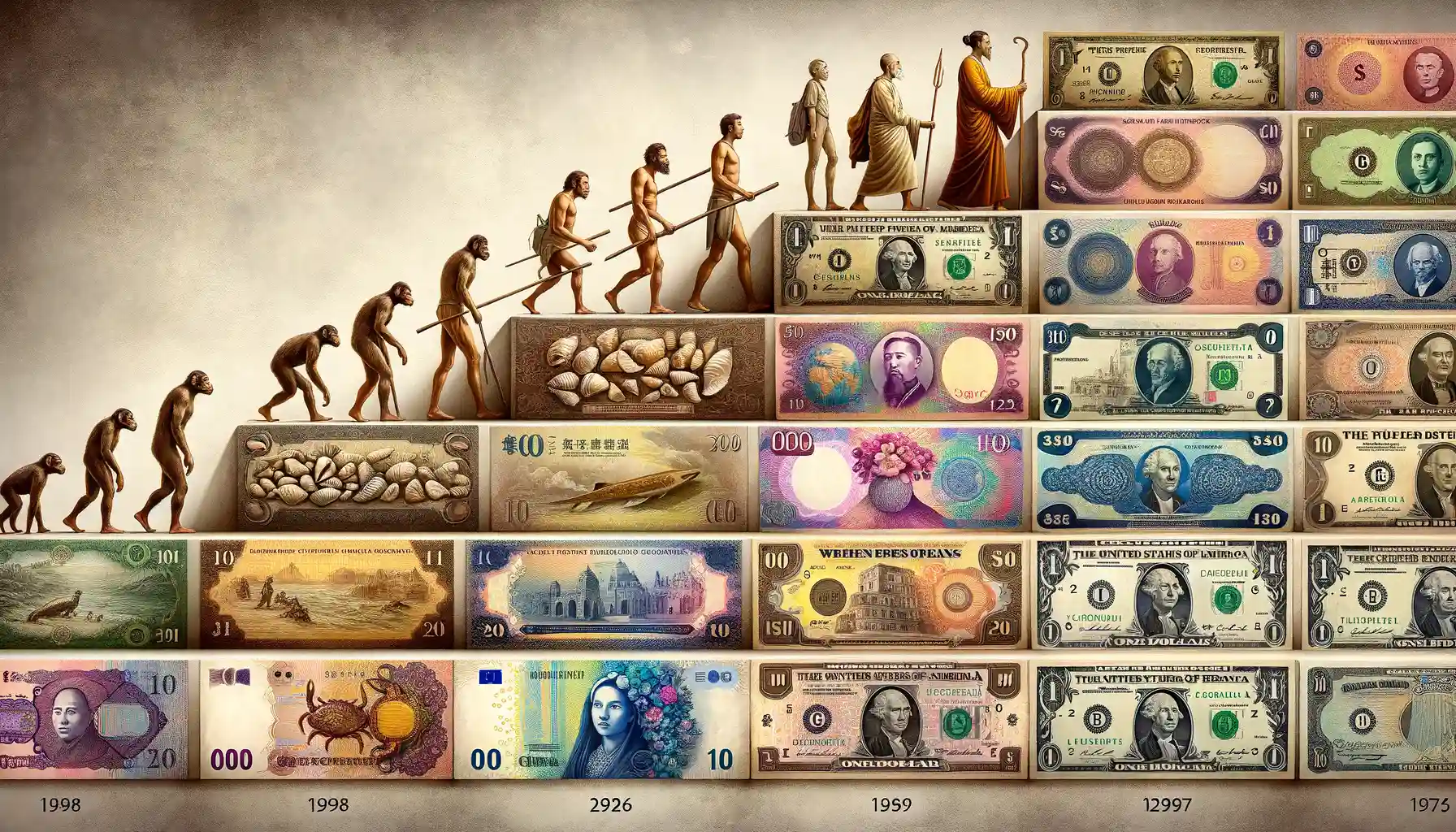Understanding Common Coin Collecting Scams
Tricks That Prey on Your Passion
Coin collecting is more than a hobby—it’s a journey into history, artistry, and sometimes, treasure hunting. But that passion? It makes collectors vulnerable to crafty scams that feel tailored just for you. One common ruse? The “too-good-to-be-true” offers. Imagine spotting a rare Morgan Silver Dollar online at a price low enough to make your heart race. You click, you buy—and what arrives? Either a counterfeit or worse, nothing at all.
Another pitfall is the so-called “mystery coin” packages. Scammers promise a mix of coins with potential hidden gems. What you often receive is a handful of low-value junk metal that wouldn’t impress even a novice collector.
The Power of Emotional Manipulation
Scammers often weave emotional traps. They may call you, claiming they’re liquidating a family collection due to tough times, tugging at your sympathy. Or, they’ll create urgency, saying, “This deal won’t last another hour!” Remember, true treasures don’t require pressure tactics.
Here’s how to spot the cons:
- Overly polished guarantees: “100% investment returns” or “Once-in-a-lifetime rarity.”
- Lack of verifiable details: No certifications, provenance, or trustworthy references.
- Shady payment methods: Wire transfers or untraceable Venmo accounts? Huge red flag!
Steps to Authenticate Coins and Protect Yourself
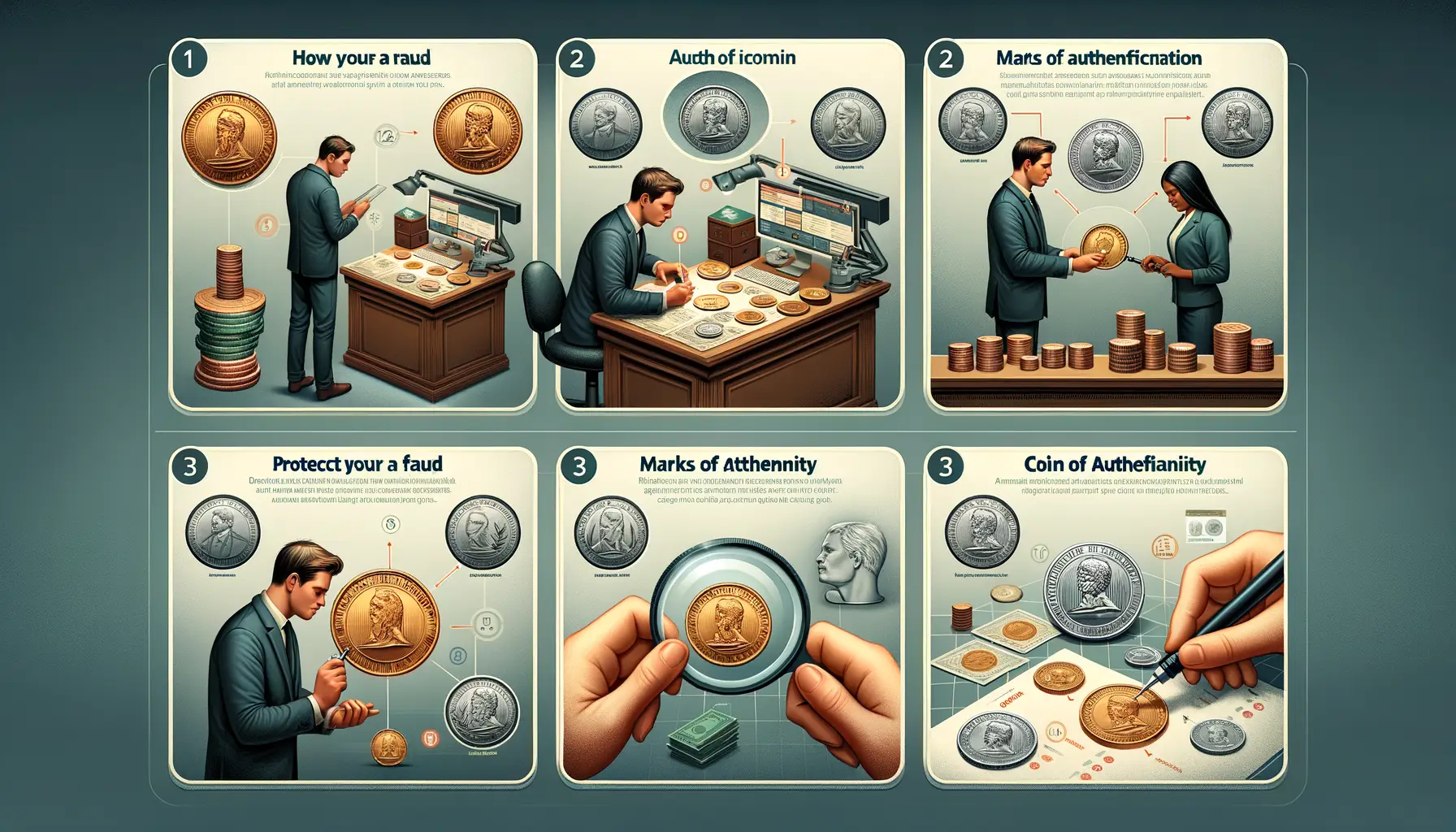
Master the Basics of Coin Authentication
Let’s face it—falling for a counterfeit coin can feel like stepping on a rake. Painful and avoidable, right? That’s why knowing how to authenticate coins will shield you from scams. Start with the basics: examine the coin’s details. Look closely at its weight, size, and engravings. A genuine coin has crisp details and precise lettering; counterfeits often look smudgy or “off” in their craftsmanship.
Next, let the magnet test be your trusty sidekick. Many fakes contain magnetic materials not found in authentic coins. Simply bring a magnet near the coin—if it sticks, it’s likely not the real deal. If you’re unsure, don’t hesitate to turn to third-party grading services like PCGS or NGC. They’re basically the Sherlocks of the coin world, providing expert evaluations and certified packaging that no scammer can replicate.
Tools & Tricks to Stay Ahead of Scammers
When it comes to tools of the trade, your arsenal matters. Keep these handy:
- Magnifying glass: It’s your window into those minuscule details scammers love to fake.
- Digital scale: Authentic coins almost always match precise weights; just a hair off could signal trouble.
- Reference books: Resources like the Red Book Guide are invaluable for spotting discrepancies.
Lastly, trust your gut. If a deal seems “too good to be true,” it probably is. Scammers prey on excitement and greed—don’t let them win!
Recognizing Red Flags in Coin Deals
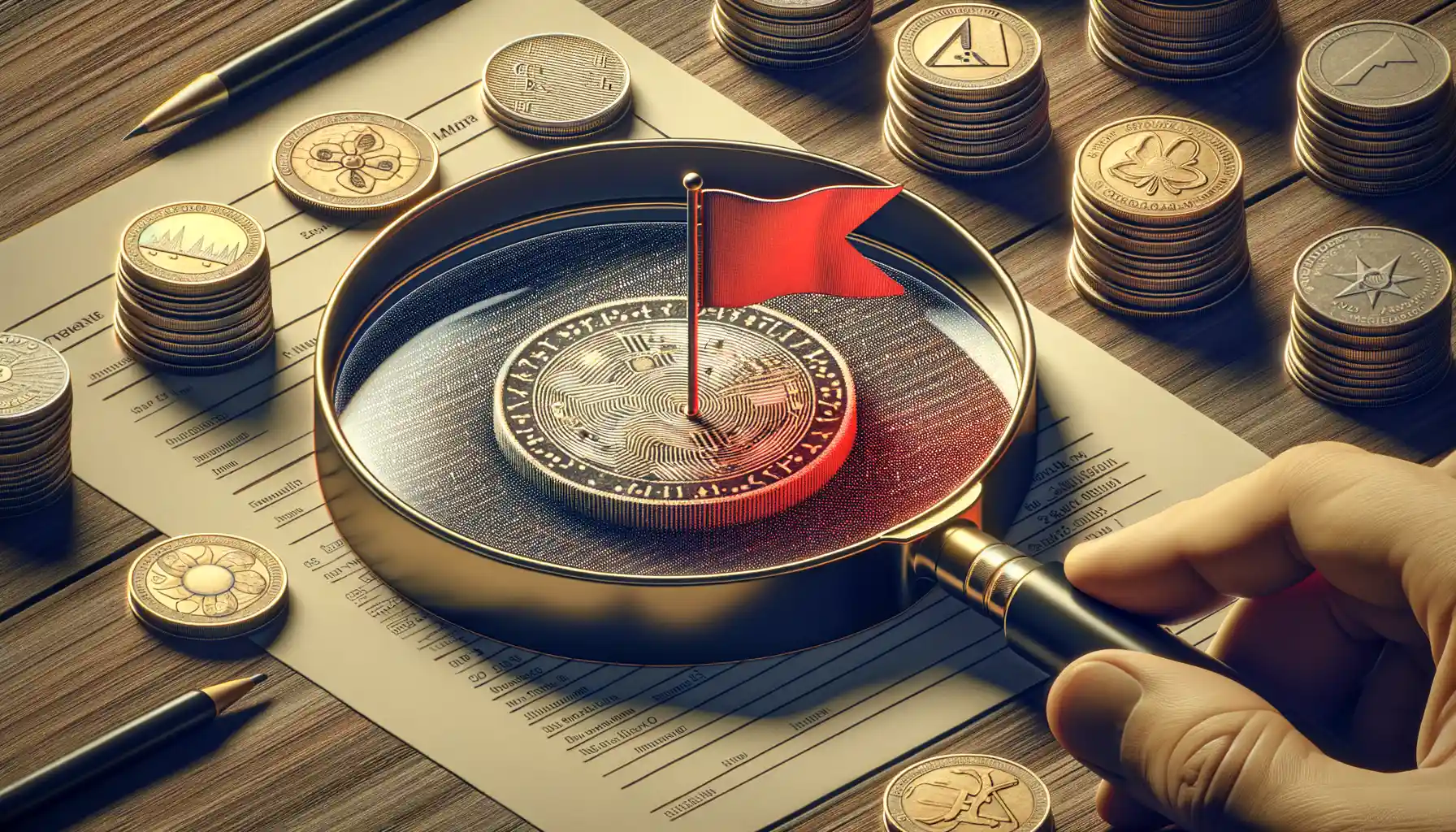
Suspicious Deals: When Coins Raise More Questions Than Answers
Have you ever come across a coin deal that felt too good to be true? That tiny voice in your head saying, “Wait a minute…”—listen to it. Spotting red flags is all about trusting your instincts while paying attention to the details. Scammers are pros at making their traps look shiny, but there’s always a crack in the facade if you know where to look.
Here’s what you absolutely need to watch for:
- “Rare coins” sold at bargain prices: If someone offers you a 1907 $20 Saint-Gaudens Double Eagle for the cost of a takeout dinner, run the other way.
- Lack of documentation: Every authentic coin worth its value comes with a story—certificates, grading reports, or at least some history. No paperwork? Big problem.
- Poor photos: Blurry, dimly-lit images scream, “Hiding something.” A legit seller displays their coin like a proud parent at a school recital.
The Danger of Pressure Tactics
Ever been told, “This deal won’t last long!” or “Others are lining up to buy this”? Scammers thrive on urgency. They want you to act fast, before you start asking tough questions. Take a step back. Real, reputable dealers understand that good decisions take time. If you feel rushed or cornered, let that be your cue to walk away—fast.
Stay sharp, and don’t let glittering promises cloud your judgment!
Best Practices for Purchasing Coins Safely
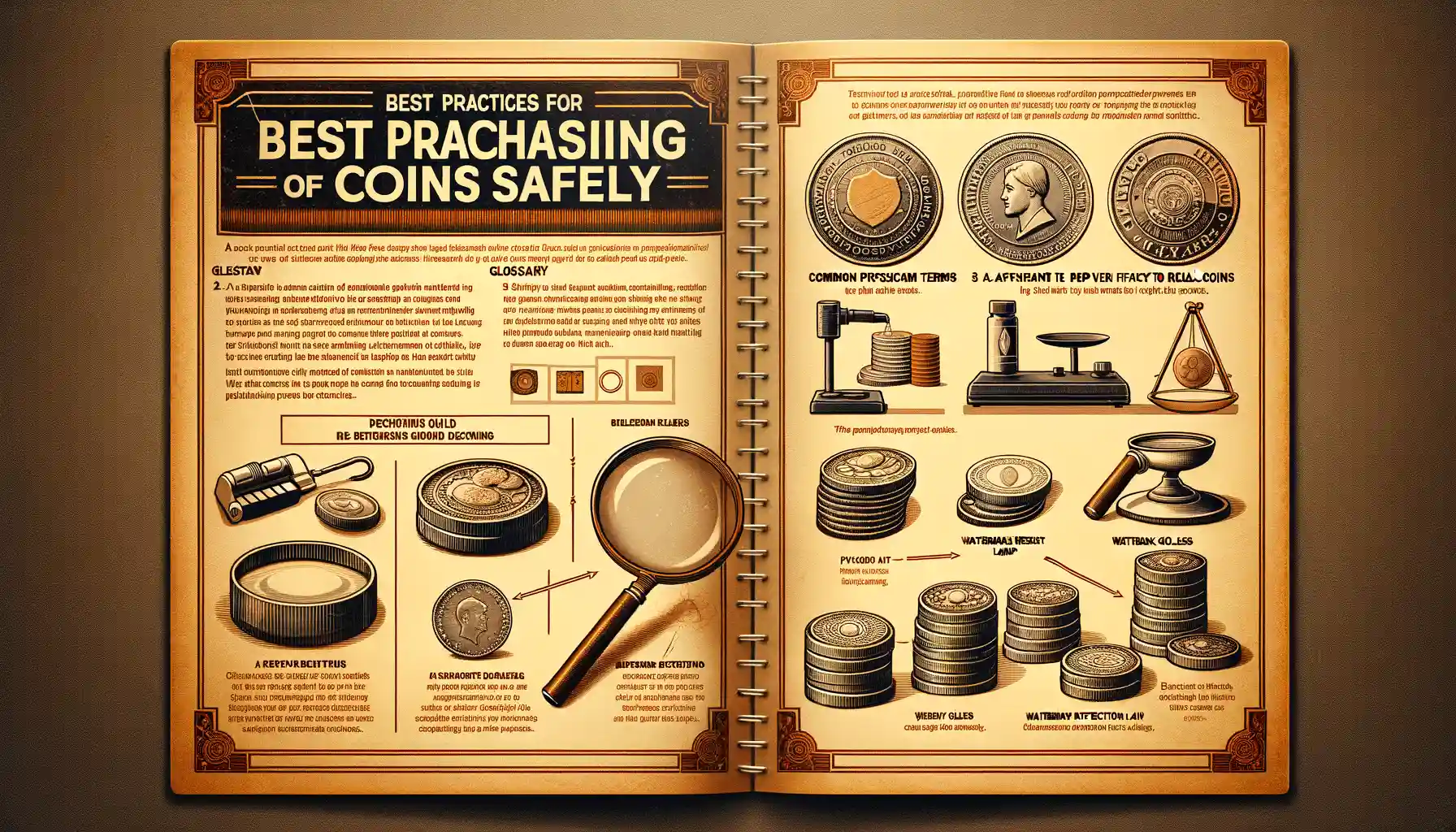
Find Trustworthy Sellers Like You’d Pick a Travel Companion
Coin collecting is more than a hobby—it’s an adventure into history. But just like you wouldn’t trust your dream vacation to someone with no reviews, the same goes for choosing who you buy your coins from. Seek out sellers with a solid reputation. Look for glowing reviews, established shops, or memberships in recognized organizations like the Professional Numismatists Guild (PNG).
And don’t stop there—dig deeper. Have they been around for years, or did their website pop up last month? A reputable seller will also have clear return policies and be happy to answer your questions without dodging or getting defensive. If something feels off, trust your instincts—they’re there to protect you!
When in Doubt, Stick to These Safe-Buying Tips
Step into this world armed with street smarts. Here are some golden rules:
- Always ask for a written invoice or receipt—this document is your safety net.
- If buying online, use payment methods that offer buyer protection, like PayPal or credit cards—not wire transfers.
- Meet in public places for in-person deals, and don’t skip on inspecting the coin yourself before sealing the deal.
Remember—a good coin deal should feel transparent, not like guessing the contents of a locked chest. Keep your enthusiasm alive but grounded, and treasure hunting will stay a joy, not a risk.
Resources for Reporting and Avoiding Scams
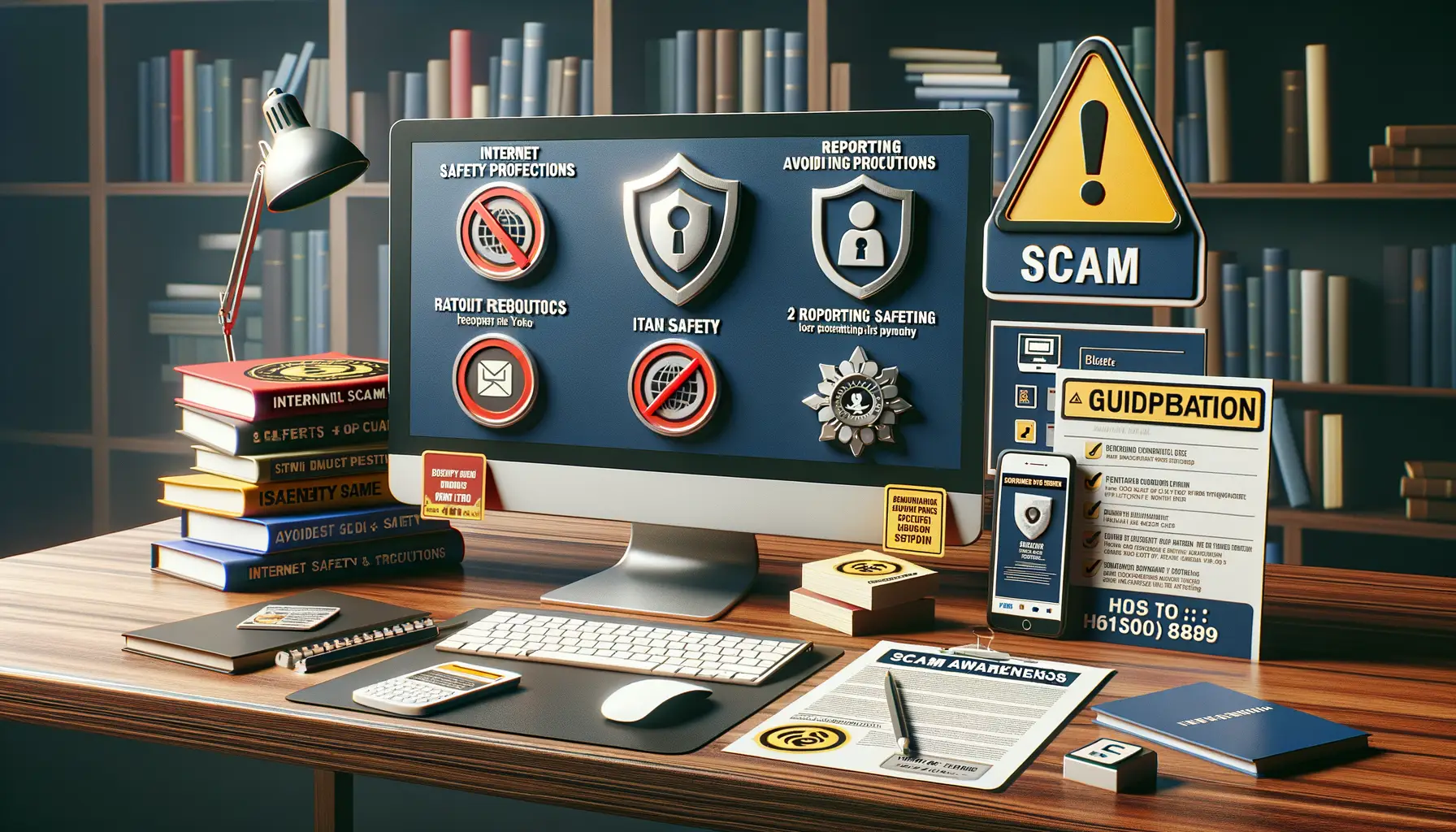
Where to Turn When You’ve Been Targeted
Let’s face it—falling for a scam feels like a punch in the gut. But remember, you’re not alone, and there are powerful tools at your fingertips to take action. If you suspect foul play, your first stop should be the Federal Trade Commission (FTC). They let you easily file a report online through their fraud division. Bonus? Your report could protect others from falling into the same trap.
Also, keep an eye on your local resources. Many police departments have specialized fraud units that deal with internet and collectibles scams. Reach out and provide them with as much detail as possible—photos, emails, receipts. Every crumb helps them track down the crook.
Go-to Online Tools & Trusted Allies
If you’re feeling overwhelmed, lean on these trusted platforms:
- Numismatic Crime Information Center (NCIC): They specialize in protecting coin collectors like you.
- Better Business Bureau (BBB): Check seller reviews or submit a complaint if you’ve been duped.
- Coin collecting forums: Collaborate with seasoned hobbyists who share tips and might even identify fraudulent sellers.
Don’t sit idle—the sooner you act, the better your chances of recovering stolen funds or coins. Trust me, every step you take is a shield against scammers.

